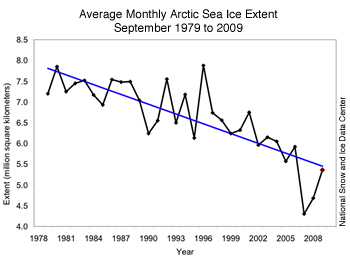
10 October
HRH The Prince of Wales: 'The countryside is in crisis. The stakes could not be higher' - Telegraph
HRH The Prince of Wales: 'The countryside is in crisis. The stakes could not be higher'
The Prince of Wales explains how computer technology can save our rural communities and the landscape they have nurtured.
By HRH The Prince of Wales
Published: 7:00AM BST 10 Oct 2009
HRH The Prince of Wales believes farmers must be supported and rural communities sustained Photo: GETTY
The countryside means different things to all of us. For some, it is a place of beauty and tranquillity - somewhere to go to escape the stresses and strains of urban life, to be closer to Nature and enjoy our wonderful landscapes. For many of us, it is a place to live and work. But whatever our relationship with rural Britain, we surely all agree that it is one of the greatest treasures of our nation.
That is why, after the horrific outbreak of Foot and Mouth in 2001, when millions of people were, perhaps for the first time, made aware of the fragility of the rural economy and the way of life it sustains, I launched my Rural Action Programme under the aegis of Business in the Community, of which I am President. I wanted to engage business leaders in finding solutions to many of the problems faced by rural communities – just as they had done so effectively in the inner cities in the 1980s. Since then, good progress has been made, but there is no doubt that our countryside remains in crisis and we have to continue to find new ways to help. The provision of services – without which no community can survive, let alone flourish – must be central to our efforts. And it has become clear that one of those services – the lack of access to high speed broadband – is putting many of those who work in rural communities at a severe disadvantage.
Related Articles
Prince Charles warns of 'broadband deserts'
Geoffrey Lean: 'the digital desert’
Hill farmers: without internet access, we face going to the wall
Digital Britain is 'an expensive and unpopular sticking plaster'
Speeding up your internet
Are you on the wrong side of the digital divide?
Access to the Internet is increasingly being considered a necessity. There is not a business in the country, with any ambition to succeed, that does not have an email address or a website. Yet still too many rural households are currently unable to access the Internet at satisfactory speeds. The handicap this places on those rural businesses, schools, doctors' surgeries and local authorities, which inhabit these so-called "broadband deserts", is immense. And, even more worryingly, many of those who are being left in the Internet's "slow lane" are the very same people who look after the countryside on our behalf – Britain's livestock farmers – and they are struggling as never before.
In real terms, livestock farmers are receiving less now than they were two decades ago. The costs of production have increased hugely and, of course, since 2005, when subsidies ceased to be linked to production, support from the European Union has been diminishing. The problem is that, try as they might, livestock farmers have not been able to make up the shortfall from the market. The dairy sector is not faring very much better, with real consequences for this country's future milk supply. How many people, I wonder, realize that the number of dairy farms has declined by over fifty per cent in the last decade and each week fourteen farmers are giving up? The situation is desperate and the result is that we are now importing one million litres of fresh milk every day – and yet this country has some of the best dairy farming conditions in the world.
Quite frankly, the fear that many of us hold is that after 2012, when support from the E.U. will alter so dramatically, it may be simply impossible for our family farmers to continue – particularly in the remote uplands, where farming is at its toughest. If they are to stay on the land they will need all the help they can get, and denying them broadband, and effectively cutting them off from the Internet, will only be more likely to drive them off the hills and into the towns and cities taking with them generations of inherited knowledge.
Does this matter? I, for one, think it does. Just pause for a moment and picture in your mind one of the upland areas you know best. Perhaps it is the Lake District, the Yorkshire Dales, Snowdonia, the Highlands of Scotland or Dartmoor? These are ancient landscapes which, over centuries, have been managed by Man in harmony with Nature to produce some of the most glorious countryside in the world. The intricate pattern of villages, fields and winding lanes; the stonewalls, stone houses and stone barns – none of this happened by chance. It was created by the hand of Man working with Nature to produce food for the people of this nation.
I have heard some people argue that it would be better to see no more farming in these areas, that they should be left to return to their original wild state. But this would be disastrously short-sighted, not to mention harmful to this country aesthetically and economically, let alone socially. It would be vandalism on a grand scale, akin to tearing down our historic cathedrals – they, too, were built by Man, but have become an integral part of our national and spiritual consciousness.
In addition, it is worth remembering that when tourists visit these areas it is invariably the charm and character of the communities that attracts them, as much as the scenery. But who keeps them all going? The Church, the village school, the shops and pubs all depend on a local economy, the backbone of which is agriculture and the family farm. Take all this away, and we are left with ghost communities, populated by little more than second-home owners. Is that the countryside we want at the end of the day? Because unless we take action, that is where I am afraid we are heading…
Fortunately, the group of business leaders on my Rural Action Programme share my anxiety and want to tackle this issue. It is led by Mark Price, the Managing Director of Waitrose, and he and his team have analysed the problem and are identifying some of the solutions, building on the work which Business in the Community has been doing since 2001. I am indebted to them for their time and commitment and am hopeful that we may find answers, driven from the business and wider community. In particular, the group is considering the creation of a fund which could help both support the farmers as they care for our most fragile landscapes and sustain our rural communities. Access to broadband must surely have a part to play in this, and I hope that everyone involved in this important issue - from both the public and private sector - will be able to come together to deliver a solution.
In Britain we are rapidly losing what is left of our local culture. When we finally wake up and find it all gone, it will not be possible to reinvent it – or 'grow' it in a test tube. The countryside is a living, delicate organism that must be nurtured because agri-"culture" should be exactly that – a subtle blend of a production system with a profoundly important psychosocial component. The stakes could not be higher. Perhaps, at the end of the day, it is worth remembering the words of the great French writer, Antoine De St-Exupery: "Only he can understand what a farm is, what a country is, who shall have sacrificed part of himself to his farm or country, fought to save it, struggled to make it beautiful. Only then will the love of farm or country fill his heart."













